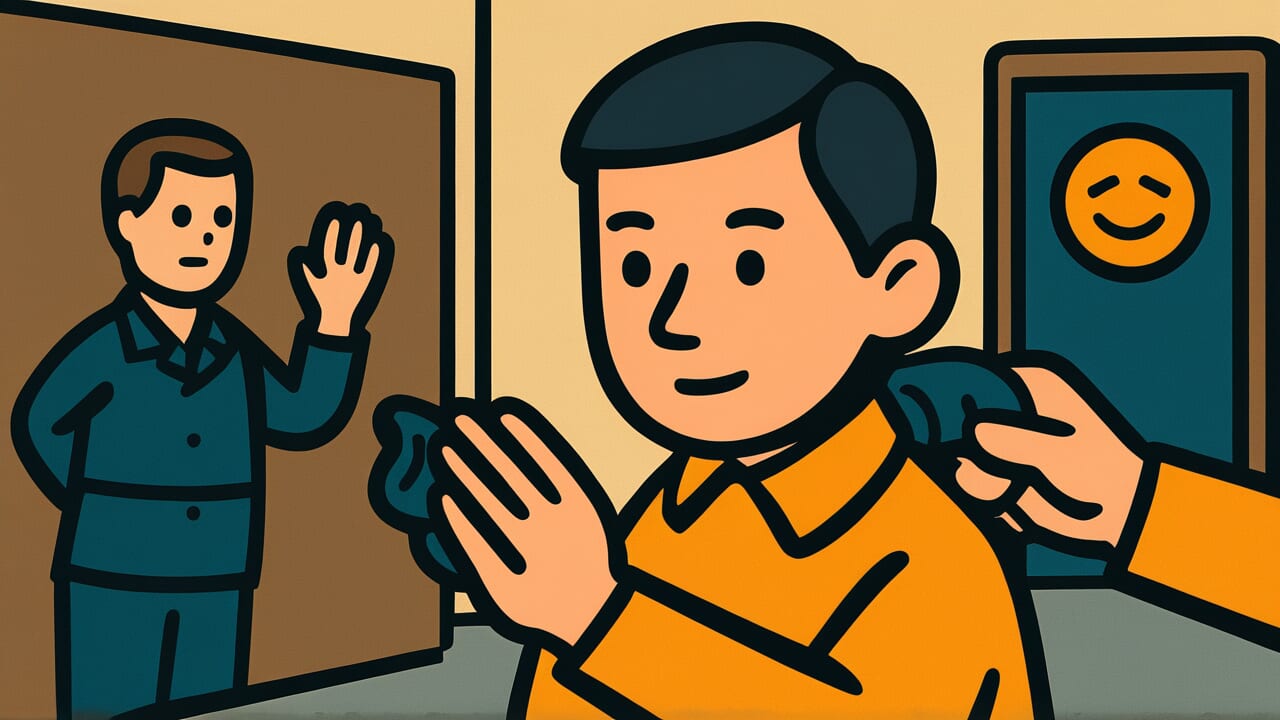How to Read “Today’s kindness is tomorrow’s enemy”
きょうのなさけはあすのあだ
Meaning of “Today’s kindness is tomorrow’s enemy”
This proverb means that kindness you show today can become the cause of trouble later. It describes situations where being kind to someone or helping them ends up bringing disadvantages or danger to yourself.
For example, you help someone in need, and that person gains power and becomes a threat to your position. Or you share information with good intentions, but the other person uses it against you and puts you at a disadvantage.
These are the kinds of situations where this proverb applies.
People don’t use this proverb just to complain about being betrayed. Rather, it teaches a life lesson about the complexity of human relationships.
It shows how well-meaning actions can lead to unexpected results. Even today, the situations this proverb describes are common in business and personal relationships.
Haven’t we all experienced times when our kindness backfired?
Origin and Etymology
There are no clear written records about the origin of this proverb. However, we can learn interesting things by looking at how the words are put together.
First, let’s look at the word “nasake” (kindness). Today it means “compassion” or “mercy.” In this proverb, it specifically means “favor” or “kind action.”
The word “ada” means “enemy” or “harm.”
This proverb likely emerged from the complex human relationships throughout Japanese history. During the Warring States period and Edo period, today’s ally could easily become tomorrow’s enemy.
Someone you helped would gain strength and then threaten you. These repeated experiences probably gave birth to this lesson.
The proverb uses a contrast between “today” and “tomorrow.” This doesn’t just mean a one-day difference. It symbolically represents the change between “present” and “future.”
People’s hearts and situations change easily. You can’t know what results your current kindness will bring in the future.
This is the wisdom of our ancestors, expressed in simple words about life’s uncertainty.
Usage Examples
- I carefully taught a new employee my job, but then that person got promoted and became my strict boss. Today’s kindness is tomorrow’s enemy.
- I taught our rival company some technology when they were struggling, but they used it to surpass us. This is exactly what “Today’s kindness is tomorrow’s enemy” means.
Universal Wisdom
This proverb has been passed down because it captures a deep paradox in human relationships. We instinctively want to believe that kindness will be returned with kindness.
But in the real world, power dynamics and changing situations can reverse the positions of benefactor and beneficiary.
Why does this happen? It’s rooted in complex human psychology. The person who was helped may feel grateful at first.
But over time, they want to believe “I succeeded through my own power.” The fact of receiving help can become a burden on their heart.
Also, once people gain power, the person who once helped them can become an uncomfortable reminder of their past weakness.
Furthermore, knowledge or opportunities given with good intentions make the other person stronger. This can create competition with you. This is also a structural problem in human society.
However, this proverb doesn’t teach “don’t be kind to people.” Rather, it conveys practical wisdom. When you show kindness, you should be prepared that you can’t know how it will turn out.
Understanding the uncertainty of human relationships, will you still choose to live with kindness? That’s the question being asked.
When AI Hears This
The act of showing kindness functions as a “cooperation” signal in game theory. However, if you send this signal incorrectly, the other person’s behavior pattern changes in unexpected directions.
The prisoner’s dilemma experiment shows interesting data. When you take a strategy of “forgiving once” after the other person betrays you, they betray again about 70 percent of the time.
In other words, the kindness of forgiveness teaches the other person that “betrayal has no cost.” This is the same mechanism as conditioned learning in animals. Behaviors that bring rewards get repeated.
What’s more important is that this learning spreads to third parties. When someone else observes you showing kindness to someone, that observer becomes more likely to judge you as “someone who can be exploited.”
Network theory calls this “negative reputation propagation.” Softness toward one person weakens your position in the entire system.
The most ironic part is that the most effective strategy for maintaining cooperation is “tit for tat.” If the other person betrays, you immediately betray back.
This strictness is what creates long-term cooperative relationships. Short-term kindness actually destroys the long-term asset of trust.
This paradox shown by mathematics is the essence of this proverb.
Lessons for Today
What this proverb teaches modern people is the importance of having kindness while also having the courage to let go of the results. When we help someone, we tend to expect something in return or gratitude.
But this proverb suggests the importance of not having such expectations.
In modern society, we increasingly face situations where we need to share information and skills. Training junior colleagues at work, sharing knowledge, cooperative business relationships.
In these moments, the lesson of this proverb has practical meaning. That lesson is: “If you help, don’t be attached to the results.”
However the other person grows and whatever position they reach, that’s their life. Even if your kindness becomes a stepping stone for them, that’s also part of life.
What matters is not regretting your kindness because of what happened.
Rather, knowing this proverb might let us help people more freely. Acting according to the kindness of this moment without expecting results.
This proverb teaches us that kind of lightness.



Comments